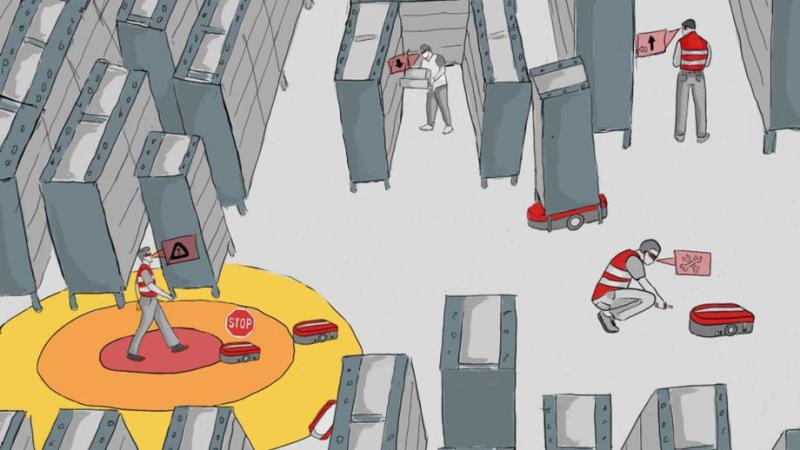SafeLog (OBZOR 2020)
We are actively involved in the HORIZON 2020 project titled "Safe Human-Robot Interaction in Logistic Applications for Highly Flexible Warehouses," abbreviated as SafeLog.

We are actively involved in the HORIZON 2020 project titled "Safe Human-Robot Interaction in Logistic Applications for Highly Flexible Warehouses," abbreviated as SafeLog.
HORIZON 2020 is the EU's largest research and innovation program, aiming to attract private investment, stimulate research, and drive economic growth and job creation through an EUR 80 billion investment over seven years (2014-2020).
Launched on January 1, 2016, the SafeLog project spans four years.
Its primary goal is to facilitate safe interactions between humans and robots in flexible logistics centers. In existing systems, safety is either achieved by completely separating humans and robots, thereby hindering collaboration, or by equipping robots with expensive safety systems.
The SafeLog approach is centered around a safety vest that, through communication with central logistics systems and individual robots, ensures the wearer's safety while optimizing the performance of the entire system.
SafeLog aims to create a holistic and certifiable safety system based on the safety vest, enabling collaboration between Automated Guided Vehicles (AGVs) and humans. The project places significant emphasis on developing planning and scheduling algorithms for managing heterogeneous fleets of AGVs and humans. Additionally, augmented reality and virtual reality-based interaction strategies are being developed to support workers in robotized warehouse environments.
Our task within the project is to develop the safety vest and secure its safety certification. Our participation is a testament to our extensive experience in developing safety-critical embedded control systems for railway applications.
Other project partners include the Karlsruhe Institute of Technology, Swisslog (a global leader in automation and logistics solutions), the Technical University of Prague, the Faculty of Electrical Engineering and Computing at the University of Zagreb, and the Fraunhofer Institute for Material Flow and Logistics.